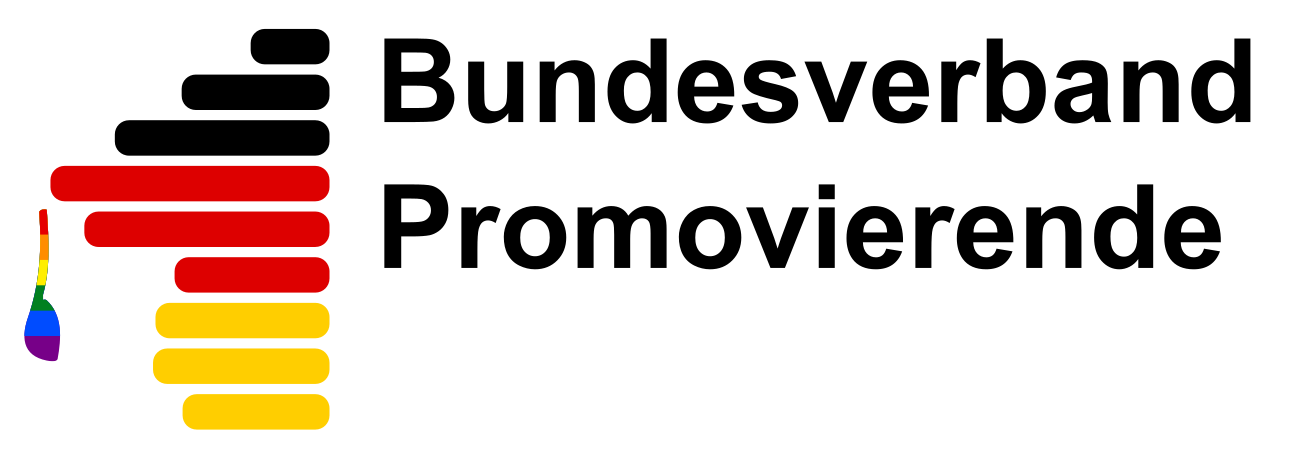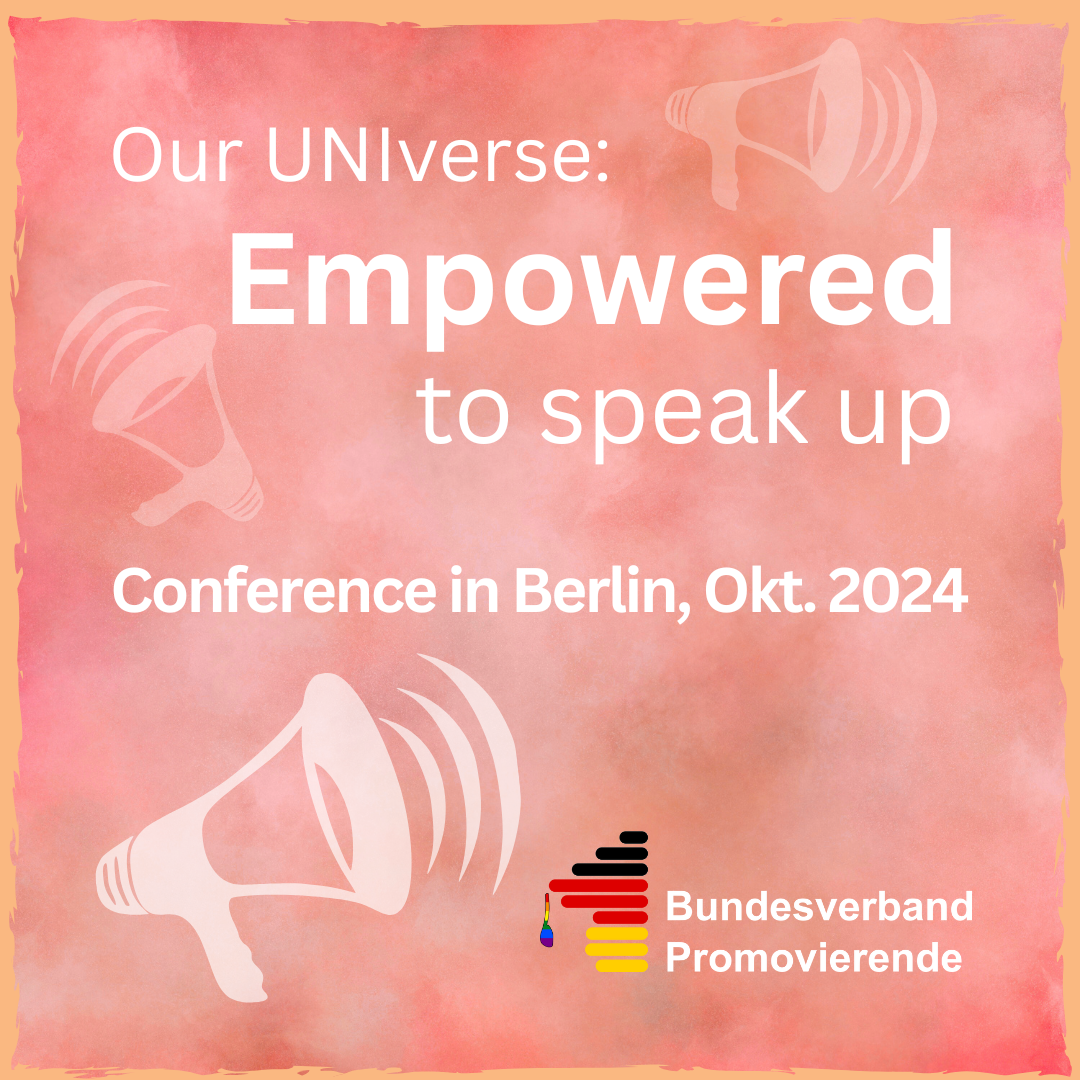On October 8th and 9th, 2024, the TU Berlin hosted the Germany-wide symposium Our UNIverse: Empowered to Speak Up with a focus on the abuse of power at universities. As a Bundesverband Promovierende, we were represented on site by Maren Weissig, our equal opportunities officer, and discussed both preventative measures and specific solutions.
Current reports by Der Spiegel and DW (see our post on this) show that power structures at Max-Planck-Institutes lead to abuse. However, power structures at universities are equally conducive to such cases. The two-fold role of thesis supervisor and employer creates a strong power imbalance and thus a fertile breeding ground for power abuse. The #MeTooInScience movement shows that sexualized violence and discrimination are widespread in academia. In addition, structural problems such as precarious working conditions, unclear career paths and non-transparent responsibilities exacerbate the precarious conditions. Those affected often have little information about contact points such as the ombudsperson or fear consequences of talking about problems. We therefore believe that the group leaders are clearly responsible to implement effective measures to promote a non-discriminatory academic culture.
At the conference in Berlin, contributions based on practical experience made it very clear that abuse of power at research institutions is not an individual problem, but is deeply rooted in structural and cultural conditions. Such problems often have a serious impact on the mental health and professional development of researchers. In conversations with doctoral candidates, one hears time and time again how doctoral candidates are put under pressure, exploited or intimidated. Particularly affected are members of marginalized groups, such as the chronically ill or people with disabilities, and people who do not fit the image of a doctoral candidate, such as older people or working-class children. The ongoing discrimination of female doctoral candidates and doctoral candidates with an East German background was also discussed in various contexts.
“You can hardly change people – but you can change structures,” said Daniel Leising, professor at TU Dresden, in his contribution to the conference. What is needed are safe spaces or anonymous reporting channels to external bodies that can take action against abuse of power without the expectation of career disadvantages. The Unser Campus project at Ruhr-Universität Bochum was also represented in Berlin. It focuses on awareness campaigns against sexism and sexualized violence. Universities can reduce abuse of power through systematic reforms such as flatter hierarchies, transparent incentive structures and recognizable sanctions. Online movements such as #MeTooSTS and #WeDoSTS rely on campaigning approaches to establish ethical responsibility structures. The FAIRSTAGE model project from Berlin demonstrated at the conference how participatory decision-making processes can democratize the distribution of power and prevent abuse. In a workshop strategies were developed to implement sustainable protection mechanisms and anchor them in the long term.
The comments under DW’s YouTube video and the lively exchange on social media show how topical this issue is. As the German Association of Doctoral researchers, we continue to advocate for better support for doctoral candidates. To this end, we are not only available to every individual but also to local representations as a point of contact. As part of the project Conversations with female doctoral candidates – women talk about their science, doctoral candidates can contact us via the e-mail address equal-opportunity@promovierende.de or the Kummerkasten. If you would like to help strengthen the network for dealing with abuse of power at universities, please contact your local doctoral student representative or contact us directly. We have a number of working groups in which the problems of doctoral students are discussed and solutions are developed.



